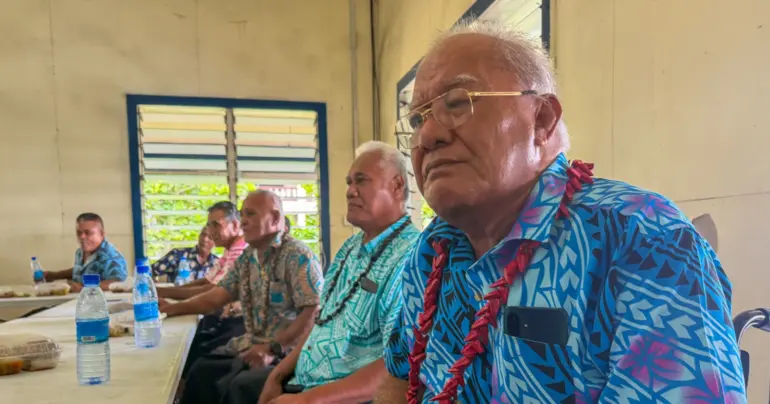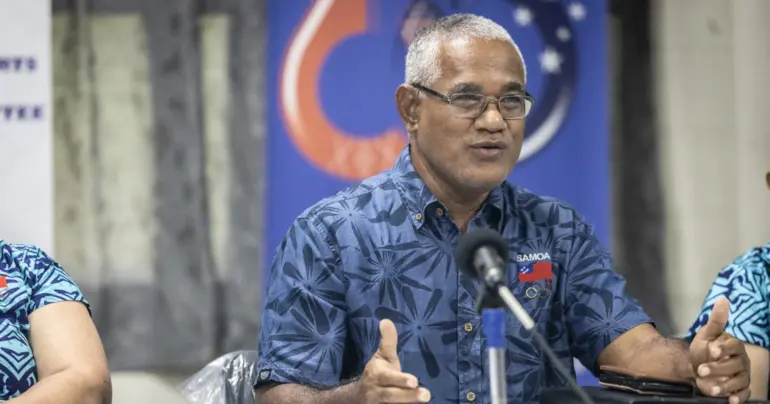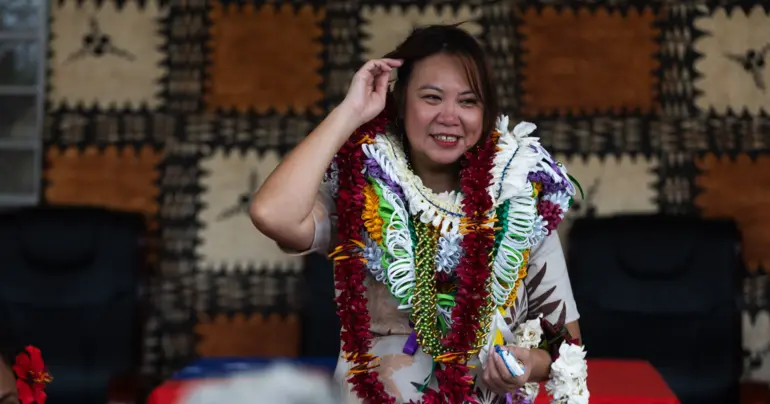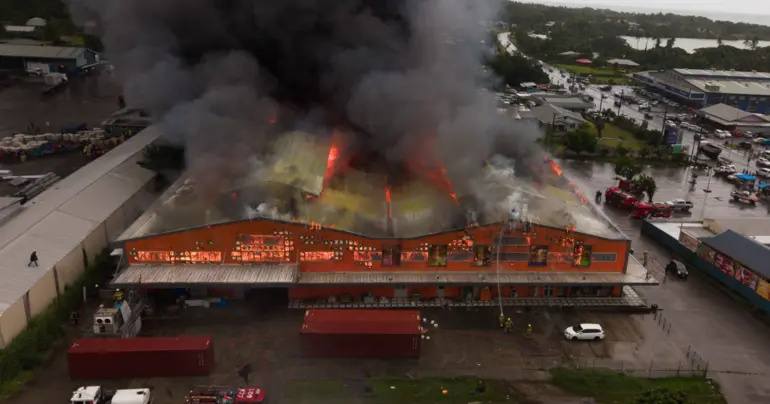Chiefs not satisfied, complaint elevated
Chiefs Not Satisfied, Elevate Complaint on Customary Lands to Highest Level of ADB Grievance Mechanism
The group of village matais (chiefs) who filed an official complaint to the Asian Development Bank (ADB) on 29 August 2014, objecting to a series of ADB-backed reforms that could lead to the alienation of customary lands in Samoa, have elevated their complaint to the Compliance Review Panel (CRP), the highest level of grievance mechanism in ADB.
This decision was made this week after the chiefs felt frustrated at the lengthy delay taken by the Office of Project Facility (OSPF) of ADB to find a solution since November 2014. According to the chiefs, the problem solving process to date has failed to address their fundamental concerns as clearly articulated in their complaint.
The chiefs are gravely concerned that the reforms, which have been carried out over the last twelve years without meaningful consultation of Samoan people, could have the effect of individualizing control over land throughout the country, and ultimately placing large tracts of land in the hands of banks. Approximately 80 percent of land in Samoa is governed under customary systems, which entail collective ownership by entire kinship groups, the aiga (extended family).
In their complaint, the chiefs state “We object to the ADB’s determination to dispense with our customary laws and systems, which have successfully safeguarded the interests of the aiga for millennia…
The risk runs high that benefits will flow not to local communities, but to foreign investors and national elites… Meanwhile, members of our aiga will face dispossession from potentially large-tracts of land, foreseeably resulting in loss of income, threats to food security and impoverishment.”
Under a series of projects called Promoting Economic Use of Customary Land, the ADB has driven land and financial sector reforms in Samoa to make it easier to lease customary land and to use those leases as collateral for loans.
The ADB wants to create a system through which a single authority figure can unilaterally lease out customary land, without consulting other members of the aiga. Under the reforms, the lease agreement could then be used by the leaseholder to access credit from a bank. But if the leaseholder is unable to repay the loan, the bank can take control of the lease, which could cover large tracts of customary land for decades.
The chiefs points out that leasing of land to outsiders for long durations, registering these under the Torrens system of land titles registration through the Land Titles Registration Act 2008 (LTRA) that does not recognize collective ownership of the extended family, and then mortgaging those leases with banks to secure interests of investors, is tantamount to customary land alienation, forbidden by customary laws as well as the Constitution of Samoa.
In short, the chiefs have said to CRP:
• In August 2014, we submitted a complaint to the Accountability Mechanism regarding the Samoa: Promoting Economic Use of Customary Land project and the Samoa: Agribusiness Support Project and asked for the complaint to be sent to the OSPF.
• Soon afterwards, our complaint was deemed eligible and OSPF commenced a problem solving process in November 2014.
• OSPF has now completed Step 3 of the problem solving process. While we appreciate the efforts of the OSPF and that a consultant has commenced work to design a consultation process on the ADB-financed project, and we fully intend to actively and constructively engage in the consultation process, a number of limits have been placed on the scope of the consultation that will mean that our concerns that form the very heart of our complaint to the Accountability Mechanism will not be addressed.
• Most importantly, the consultation has been defined as “forward-looking” only, addressing issues in the current phase of the ADB-financed project, and our grievances also relate to reforms that have already taken place under preceding phases of the ADB-financed project, in addition to the current phase.
• We also have concerns that the consultation process will not be meaningful as defined by ADB’s Safeguard Policy Statement, but will continue to use our own best efforts in this regard.
• We believe that the harms and anticipated harms that we describe clearly in the complaint document relate to serious non-compliance by the ADB, warranting a full CRP review for a full and independent investigation into all phases of the projects that are the subject of our complaint and CRP to conduct its investigation in parallel to the implementation of Step 4 (implementation and monitoring) of the OSPF problem solving process.
Whilst the chiefs decided to transfer the complaint to the CRP, they will nevertheless constructively engage in the consultation process being worked out by the consultant and government promised to commence in May. CRP is requested to investigate whether the ADB’s safeguard policies, including the Indigenous People’s policy, were complied with because chiefs do not believe that some of the central concerns with past reforms affecting customary land tenure will be addressed.
Specifically, the chiefs are, amongst others, concerned with failure to comply with protection of customary lands as provided under the constitution, the implications that are associated with the Land Titles and Registration Act 2008, the registration under the LTRA of all leases under the Alienation of Customary Lands Act 1965 and decisions of the Lands and Titles Court in relation to customary lands, the advisory roles vested in the Customary Lands Advisory Commission Act 2013, the use of the agribusiness project component to expand customary land leases registry under LTRA, the real concern that land taxes underpin these land reforms, the concern this will lead to alienation of customary lands, the failure of ADB to stop the activities of past Phases I and II until the Samoan peoples have been meaningfully consulted as there has been no meaningful consultation with the peoples of Samoa in full tenure of the TAs over the last twelve years of project implementation.
The chiefs believe that an independent investigation by the higher level of governance and grievance mechanism of ADB through CRP is necessary because of the gravity of what is at stake in Samoa - the very fabric of the customary way of life and cultural references of all Samoans, the integrity of the matai (chief) system, the inter- and intra-generational responsibility to ensure protection of customary lands, the real danger that the TAs will amount to alienation of customary lands, to name a few are inevitable as a result of these projects.
They also wish to take this opportunity to ask all Samoans at home and seek out all the Samoan peoples around the world to rally around this complaint as collective customary landowners Every Samoan and those with a stake in this are requested to actively participate in the proposed consultations to ensure they are meaningful and that their voices are heard in support of the desires of the framers of our constitution to prohibit any alienation of our customary lands.
Complainants:
Leuluaialii Tasi Malifa – matai o Afega/lawyer/Libra Law
Dr Lilomaiava Lavea Talotuoge Ken Lameta – matai o Vaimoso and Safotu, Veterinary Doctor
Telei’ai Dr Sapa Saifaleupolu (PhD) – matai o Samatau/consultant
Fiu Mata’ese Elisara – matai o Sili











